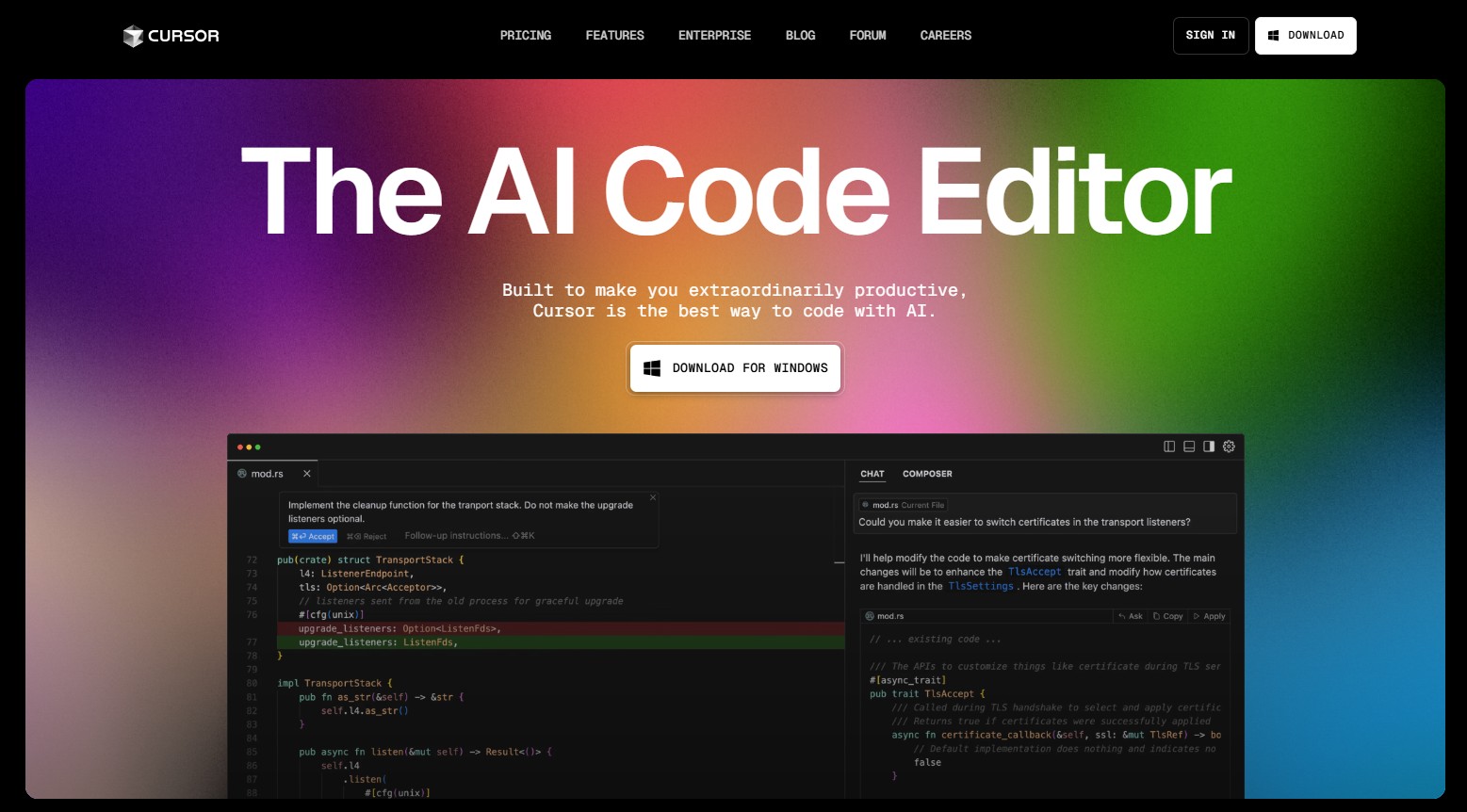
The Role of B2B Partnerships in SaaS Growth - How Collaboration Drives Success in 2025
Unlock the potential of strategic partnerships in SaaS for growth in 2025. Discover how collaboration opens doors to new opportunities and drives success.
In recent years, Software as a Service (SaaS) has become a cornerstone for businesses seeking flexible, scalable solutions to streamline operations and reduce costs. The subscription-based nature of SaaS has enabled companies of all sizes to improve efficiency and stay competitive. As we move towards 2025, SaaS companies are realizing that the future of growth extends beyond just offering innovative SaaS products. Instead, strategic partnerships are becoming key to unlocking new markets, expanding their customer base, and driving significant revenue growth. By collaborating with the right partners, SaaS companies can enhance their value proposition and accelerate success in an increasingly complex business environment. For a deeper understanding of where the industry is headed, check out our article on the future of SaaS in 2025.
In this blog, we'll explore how B2B partnerships in the SaaS sector are becoming an essential component for driving growth and enhancing a company's value proposition. By the end, you'll understand why collaboration is no longer optional but a vital strategy to help SaaS companies expand into new markets, acquire more customers, and maximize revenue growth.
Why Are B2B Partnerships Crucial for SaaS Growth?
As the SaaS market continues to evolve, companies must find new ways to stay competitive. The focus has shifted from simply developing a high-quality product to creating synergies with complementary businesses. The right strategic partnerships allow SaaS providers to not only improve their offerings but also to increase their market reach, expand customer bases, and ultimately drive revenue growth. If you're just starting out, our guide on how to get your first 10 users for your B2B SaaS startup provides valuable insights into early growth strategies.
For SaaS companies, collaborating with other businesses — whether through co-marketing, joint product development, or tech integrations — creates a strong ecosystem that benefits both parties. By tapping into each other's strengths, SaaS companies can access a broader target market, offer more comprehensive solutions, and ultimately gain a competitive advantage.
How B2B Partnerships Address Customer Needs in SaaS
One of the most powerful ways SaaS companies can enhance their value proposition is by leveraging B2B partnerships to address evolving customer needs. By collaborating with other companies, SaaS providers can integrate complementary technologies and services that better serve their customers. Whether it's through seamless integrations, enhanced features, or personalized solutions, partnerships enable SaaS companies to quickly adapt to changes in customer expectations and provide a more comprehensive offering. For example, in the fintech industry, partnerships between payment processors and accounting software providers create more value for end users.
Types of B2B Partnerships for SaaS Companies
The beauty of partnerships in the SaaS world is the variety of ways they can be structured. Different potential partners offer distinct opportunities to enhance a SaaS product or service offering. Here are some common types of B2B partnerships in the SaaS space:
1. Technology Partnerships
For SaaS companies that want to improve their value proposition, partnering with technology providers that offer complementary services or features is one of the most powerful moves. Through integration, SaaS platforms can enhance their functionality and offer more value to their customers. For instance, integrating AI tools, analytics, or CRM systems can create a more robust solution.
Example: A SaaS company offering accounting software can partner with a payment processing provider to offer integrated payment solutions. This partnership enhances the user experience and provides added value.
2. Sales and Marketing Partnerships
Another important type of strategic partnership is with other companies that can help SaaS companies expand their market reach. Whether through affiliate marketing programs, joint webinars, or co-branded campaigns, sales and marketing partnerships help boost customer acquisition and increase revenue.
By collaborating with a partner with a complementary target market, SaaS providers can introduce their services to new customers, without the significant costs typically associated with customer acquisition. Moreover, marketing through partnerships can provide valuable brand credibility and visibility.
3. Distribution Partnerships
Distribution partnerships allow SaaS companies to leverage third-party networks, such as resellers or channel partners, to distribute their software. These partners have established trust within specific industries or geographies and can offer SaaS products to their customer bases, resulting in increased sales. For example, in the healthcare industry, partnerships with established medical software providers can help new SaaS solutions gain traction.
For startups, distribution partnerships can dramatically reduce the barriers to entry in new markets, enabling them to scale quickly.
4. Co-Branding Partnerships
Co-branding partnerships allow SaaS providers to offer joint products or services that combine the strengths of both companies. By collaborating on a co-branded product, SaaS companies can expand their ecosystem and offer something unique to the market. The e-commerce sector often sees successful co-branding partnerships between platform providers and payment solutions.
These partnerships can also enhance customer loyalty as users benefit from an integrated, all-in-one solution, further elevating the value proposition of both partners.
How Partnerships Drive Growth for SaaS Companies
B2B partnerships can be the key to unlocking a SaaS company's potential. Here's how collaborating with the right partners can contribute to growth:
1. Expanding Market Reach
One of the primary benefits of partnerships is the ability to expand market reach. By collaborating with companies that have complementary products, SaaS companies can tap into new customer segments and access untapped markets. This allows startups and established SaaS companies to gain access to new audiences and diversify their revenue streams.
Example: A SaaS startup offering project management tools can partner with a collaboration software provider to cross-sell their solutions to the other's customers, broadening the user base.
2. Enhanced Customer Acquisition
The right partnerships open doors to new avenues for customer acquisition. A strategic partnership can help SaaS companies gain credibility, improve trust with potential clients, and increase their exposure in target markets. When aligned with the right partner, a SaaS startup can access its partner's established customer base, accelerating its growth.
3. Increasing Revenue Growth
A strong partnership creates new revenue streams. Whether it's through joint ventures, shared services, or co-marketing, SaaS companies can unlock new revenue growth by collaborating with the right partners. Through co-selling, joint offers, or upselling, partnerships allow SaaS companies to create new revenue channels that would be difficult to achieve independently. Learn more about monetization in our guide on how to create a scalable SaaS pricing model.
4. Building an Ecosystem of Complementary Services
Partnerships help build an ecosystem of complementary services that create more value for the customer. By integrating other services or technologies into a SaaS platform, startups can offer a complete package to clients, increasing customer retention and driving long-term revenue growth. These ecosystems not only help companies become more competitive but also unlock new synergies that would be impossible without collaboration.
Best Practices for Building Successful Partnerships
While B2B partnerships offer immense potential, their success depends on clear communication, alignment, and effective execution. Here are some best practices for SaaS companies looking to establish and maintain strategic partnerships:
1. Clear Communication and Goal Alignment
To maximize the value of a partnership, it's essential to align the goals of both companies. Whether it's to expand market reach, increase revenue, or develop a new product, both parties must be on the same page. Clear, open communication and setting mutual expectations are crucial to achieving shared success.
2. Choose the Right Partners
Identifying the right partners is essential to a successful collaboration. SaaS companies should look for potential partners that complement their offerings and can help them achieve their business goals. Compatibility, a shared customer base, and aligned values are critical factors in selecting the best partnership opportunities.
3. Track and Measure Success
To ensure that the partnership is driving the desired results, it's important to track and measure success using key performance indicators (KPIs). Metrics like customer acquisition rates, revenue growth, market share, and customer satisfaction can help measure the partnership's effectiveness and provide valuable feedback for continuous improvement.
The Future of B2B Partnerships in SaaS
In 2025, B2B partnerships will continue to play an integral role in SaaS growth. As technology continues to evolve, SaaS companies will need to partner with others to remain competitive and offer comprehensive solutions. AI, machine learning, and cloud computing will drive new collaboration opportunities, enabling SaaS providers to expand their ecosystem and enhance their value proposition.
The most successful SaaS companies in 2025 will be those who leverage partnerships to enhance their products, expand market reach, and drive growth. By collaborating effectively and aligning their strategies with the right partners, SaaS companies can position themselves for long-term success.
Conclusion
The power of B2B partnerships in SaaS cannot be overstated. By leveraging complementary strengths, SaaS companies can enhance their offerings, increase revenue, and unlock new opportunities. In a rapidly changing market, the value of partnerships will continue to grow as SaaS providers look to expand into new markets and meet the evolving needs of customers.
By strategically collaborating and aligning their goals, SaaS companies can create lasting synergies, build stronger ecosystems, and position themselves for success in 2025 and beyond.




